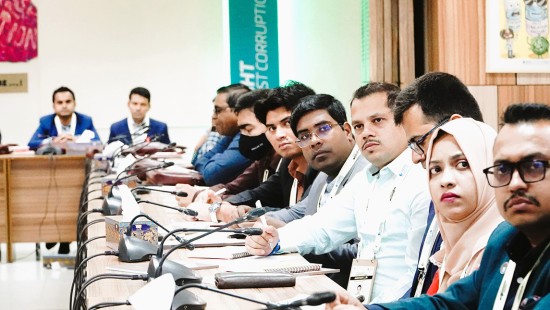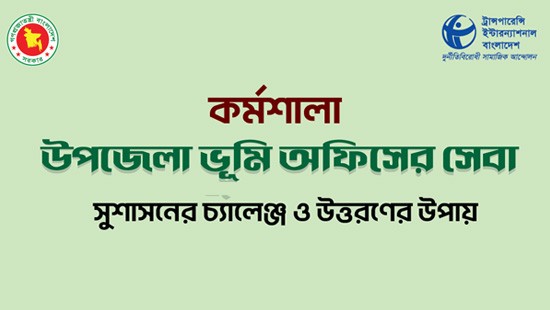Published: 19 May 2024

The 2nd phase of the upazila election shows a trend of unhealthy competition for power, devoid of public interest and welfare. Similar to the first phase, the election demonstrated that holding onto power helps spike wealth for public representatives compared to their losing opponents. This motivates many candidates to run for public office, even if it involves disregarding party discipline and rules, TIB’s research findings observed. TIB termed it as ‘undemocratic’ and ‘self-centered’.
TIB findings also noted a staggering wealth surge among the spouses of the candidates and found relatives of incumbent MPs running for office at the local level. Additionally, the participation of businessmen in the election solidifies TIB’s observation that the election is merely a means to grab power for increasing wealth.
Mentioning that the link between power and wealth gain is clear for public representatives who have been in power for a long time, the TIB Executive Director Dr. Iftekharuzzaman stated, “Long-serving public representatives clearly link power and wealth. Incumbents significantly increase their wealth, leading to unhealthy competition for public representation. Often, the focus shifts from public welfare to wealth accumulation. Authorities show little interest in verifying or investigating the unusual wealth increases declared in affidavits.”
These observations were derived from research findings on the 2nd phase of the upazila election conducted by TIB. The findings were revealed at a press conference at the TIB Dhaka Office on 19 May 2024. The 2nd phase of the election will be held in 160 upazilas on 21 May 2024. However, candidates’ affidavit information from only 157 upazilas was available from the Information Commission. More than 1800 candidates’ affidavits were analyzed in the second phase. A total of 1811 candidates are running for chairman and vice-chairman positions.

Wealth surge: The findings show that the income of incumbent upazila chairmen increased by 148.87%, while their movable assets surged by 231.57% since 2019. A similar trend is observed among incumbent vice-chairmen and female vice-chairmen. Upazila election candidates are not behind in this race. The research notes that the movable assets of 156 upazila election candidates increased by at least 100% in the last five years. Notably, the Jhalokati Sadar Chairman candidate holds the highest record, with his assets increasing by 11,666% over this period.
Wealth surge among spouses/dependents: Surprisingly, the movable assets of the spouses or dependents of 42 candidates also increased by 100%. The Rajbari Pangsha Chairman candidate holds the record in this category, with his spouse/dependents’ movable assets increasing by 12,400%.
Relatives entering politics: The research also finds that at least 17 upazila candidates are relatives of current MPs, compared to 13 in the first phase of the election.
Businessmen dominate candidate pool: The research reveals that 70.51% of the chairman candidates are businessmen, according to their affidavits. This trend is also observed among vice-chairmen and female vice-chairmen, followed by farmers, lawyers, and teachers.
Rise of multimillionaires: Based on movable assets, a total of 116 candidates are multimillionaires. This includes 105 chairmen, 08 vice-chairmen, and 03 female vice-chairmen.
Land ownership violations: According to the law, an individual can possess up to 100 bighas or 33 acres of land. However, four candidates are found to be in violation of this law, collectively holding an additional 38.73 acres of land.
For more: https://www.ti-bangladesh.org/articles/research/6988






